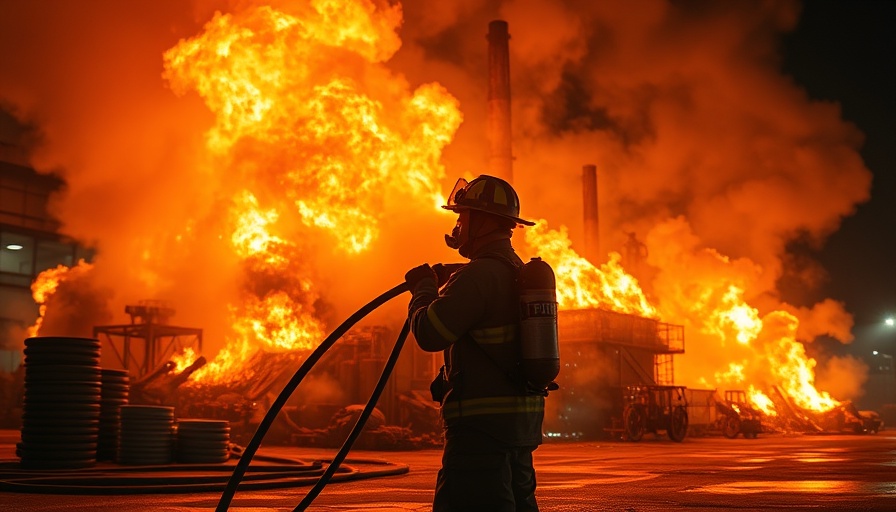
A Blaze in the Heart of Johannesburg: Fire in CBD Factory
On the night of April 9, 2025, a significant fire erupted at a two-story factory building situated in the Johannesburg Central Business District (CBD). The building, which is known for storing clothing, was reported to be ablaze shortly after 10 PM. Johannesburg Emergency Services, led by spokesperson Nana Radebe-Kgiba, received the emergency call, prompting a swift response. Fortunately, the building was unoccupied at the time, with the security personnel being the first to alert the firefighters.
Emergency Response: Quick Action Saves the Day
Upon arrival at the scene, emergency services confirmed that the flames had reached the second floor, creating a challenge for the fire-fighting teams. Radebe-Kgiba indicated that there was no risk to human life, which was a fortunate turn in a potentially hazardous scenario. However, the cause of the fire is currently under investigation, and the community is anxiously awaiting more details on the incident's origin.
Understanding the Impact: Factory Fires and Community Health
The implications of fires like this extend far beyond the immediate damage to property. Factory fires can disrupt local economies, especially in areas like Johannesburg CBD, which relies heavily on commerce and services. As businesses struggle to recover from physical damage, the economic ripple effects can lead to job losses and decreased consumer confidence. It is essential for communities and policymakers to consider strategies for enhancing fire safety in commercial buildings, particularly as economic recovery remains a critical concern for the region.
Broader Implications: A Need for Policy Improvements
This incident brings to light the urgent need for comprehensive safety regulations in industrial spaces. The South African government has historically faced challenges in implementing strict safety codes, and this fire serves as a potent reminder. In the face of issues such as load shedding and ongoing economic recovery efforts, the governing bodies must prioritize the reinforcement of safety standards to prevent future tragedies. The impact of such fires on surrounding businesses, including local restaurants and shops, can be particularly severe, often leading to decreases in foot traffic and sales.
Community Response: Rallying Together for Safety
Community safety initiatives have become increasingly prevalent in South Africa, with citizens advocating for their neighborhoods by pushing for greater accountability from local government. The implications of fire incidents, including potential property loss and job displacement, have highlighted the need for active community engagement in safety discussions. Residents can play a pivotal role by encouraging local businesses to adopt better safety measures and by working with local government to advocate for improved emergency response systems.
Conclusion: The Call for Enhanced Safety Measures
The fire at the Johannesburg factory serves as a critical reminder of the ongoing need for stringent safety protocols in commercial spaces. As the inquiry into the cause of the blaze unfolds, it is crucial for the community to engage in discussions surrounding fire safety and emergency preparedness. Now, more than ever, is the time for residents and businesses alike to advocate for improved standards to ensure their safety and the longevity of their enterprises.
Awareness of these critical issues can inspire positive action. Consider reaching out to your local representatives to discuss enhancing fire safety regulations and emergency response training within your community.
 Add Row
Add Row  Add
Add 




Write A Comment